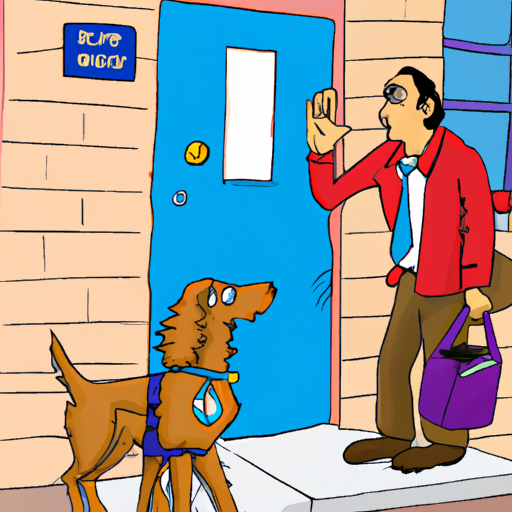As a caregiver, it’s essential to ensure your dog’s emotional well-being. In this article, you’ll learn about practical strategies to help your dog cope with separation anxiety and reduce their barking when you’re not home.
1. Understanding Separation Anxiety in Dogs
Just like humans, dogs can experience anxiety. Their symptoms can show up in various ways, including excessive barking when left alone. This behavior is an expression of a dog’s fear and stress due to their caregiver’s absence.
Table: Common Symptoms of Separation Anxiety in Dogs
| Symptoms | Description |
|---|---|
| Excessive barking or howling | A dog may start barking or howling excessively when left alone. |
| Chewing, digging, or destruction | Dogs may damage things around the house. |
| Escaping | The dog may try to escape from an area where it’s confined when left alone or separated. |
2. Training Your Dog for Your Absence
Proper training can help your dog manage their anxiety when you’re not around. Here’s a step-by-step process to help you:
- Start by leaving your dog alone for a few minutes and gradually increase this time.
- When you leave or return home, minimize your interaction with your dog to avoid triggering anxiety.
- Reward your dog for calm behavior. This can be a treat or verbal praise.
3. Creating a Safe and Comfortable Environment
The environment in which your dog stays when you’re away can significantly impact their anxiety levels.
- Make sure your dog has access to their favorite toys.
- Leave some of your clothing pieces around. Your scent can provide comfort to your dog.
- Leave the radio or TV on to provide some background noise.
4. Consultation with a Professional
If you’ve tried the above strategies and your dog continues to bark excessively, it may be time to consult a professional. A veterinarian or a dog behaviorist can provide additional strategies or potential medications to help manage your dog’s separation anxiety.
5. Emphasizing the Importance of Exercise
Regular exercise is crucial for your dog’s overall well-being. A tired dog is a good dog. So, ensure your dog gets plenty of exercise before you leave the house. This can help to reduce their anxiety and keep them calm while you’re gone.
Frequently Asked Questions
Q: How long does it take to train a dog to be comfortable when left alone?
A: The training period varies for each dog. It can be anywhere from a few weeks to several months.
Q: Can a dog overcome separation anxiety completely?
A: With consistent training and support, many dogs can significantly reduce or even overcome their separation anxiety.
Q: What should I do if my dog becomes aggressive due to separation anxiety?
A: If your dog’s anxiety leads to aggressive behavior, it’s time to consult a professional. They can provide you with the right strategies or treatments.
In conclusion, understand that it’s a journey to help your dog overcome their separation anxiety. With patience, consistency, and the right strategies, you can help your dog feel more comfortable when you’re not around.



